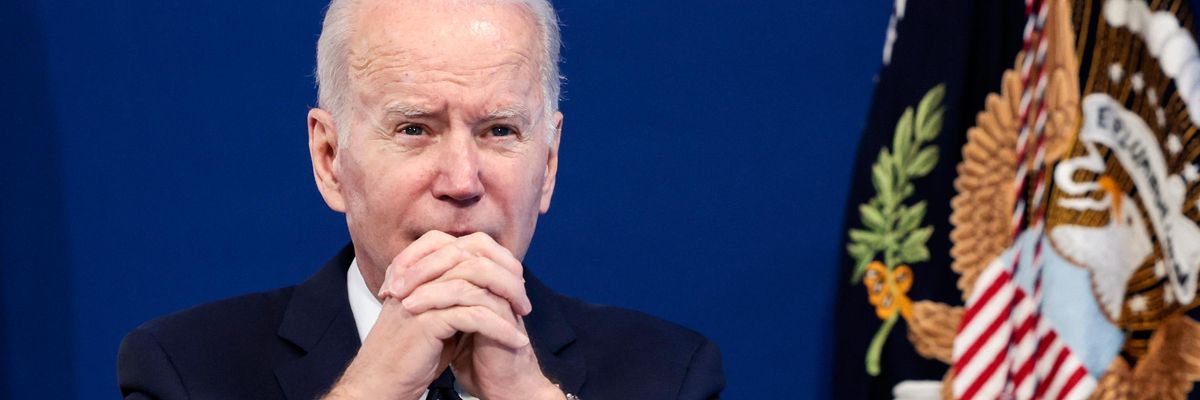The catastrophe in Israel and Gaza demonstrates yet again the truth of a remark by British Prime Minister Harold Macmillan when asked about the greatest challenge for a statesman: “Events, dear boy, events.” Governments make elaborate plans for the conduct of foreign and security policy, only to find themselves scrambling to respond to some unforeseen development.
However, events like the Hamas attack on Israel or the Russian invasion of Ukraine do not come out of nowhere. They are the product of human decisions; and if the decisions themselves cannot be predicted in detail, the circumstances that produce them can be studied. That after all is why we have legions of intelligence analysts, foreign service officials, and “experts.”
The first lesson of the present horror for Western policymakers is therefore always to remember that the adversary has a vote, and its actions will be shaped by America’s own behavior. The second is that certain parts of the world are much more likely to generate disastrous events than others. The third is that the more areas of the world in which the United States involves itself, the more exposure to such events it has. The last lesson is that adversaries in one part of the world will inevitably try to take advantage of American difficulties in another.
By seeking primacy in every part of the world, the United States is ensuring that it will face threats and crises in every part of the world
In other words, the pursuit of U.S. primacy in every corner of the world (as laid down in the “Wolfowitz Doctrine” of 1992 and followed in effect by every subsequent U.S. administration) is a surefire guarantee that the United States will sooner or later find itself facing multiple crises simultaneously.
Twice since taking office the Biden administration has sought to deal with complex and dangerous international problems by shelving them while it dealt with something else. In the words of a European official, “they thought they were kicking cans down the road, but they turned out to be hand grenades.”
By the Spring of 2021, U.S. officials were declaring in private that the Minsk Agreement to solve the conflict in eastern Ukraine (providing for guaranteed autonomy for the Donbas within Ukraine) was dead. They had, however, no thoughts at all on what to replace it with, other than to go on arming Ukraine and emphasizing support for Ukraine and NATO membership at some unspecified point in the distant future.
The administration’s hope was that the issue of Russia and Ukraine could be shelved while America concentrated on confronting a far more powerful rival, China. When Moscow made clear that it would not play along with this, the administration had no plan, either for full commitment to Ukraine or a diplomatic compromise with Russia. Only the extraordinary courage and resilience of Ukrainian troops in the first weeks of the war saved Ukraine from conquest and America from shattering humiliation.
In the Middle East, a renewal of the nuclear deal with Iran was blocked and delayed by U.S. demands that it should have been obvious would never be accepted by Tehran, in the belief that Tehran was not in a position seriously to harm the United States or Israel. The Israeli-Palestinian conflict was basically ignored completely, even as Israeli settlement policy progressively destroyed the possibility of the “Two State Solution” to which the U.S. remains officially committed.
Instead, the Biden administration followed the Trump administration in seeking to do an end-run around both issues by promoting a de facto alliance between Israel and Saudi Arabia that would contain Iran and leave the Palestinians completely isolated and without support.
But of course Hamas was able to see through this U.S. plan perfectly well. The result is a disastrous new conflict that will among other things wreck any hope of Saudi-Israeli normalization, and could destabilize U.S. client states across the Middle East.
Certain voices in Israel and the United States are now seeking to widen this disaster by using it to promote an Israeli-U.S. attack on Iran, just as they used 9/11 to promote a U.S. attack on Iraq. One might almost assume that these voices are working for Vladimir Putin and Xi Jinping — for very few things are more ardently yearned for in Moscow than a war between the U.S. and Iran. It would distract U.S. resources from Ukraine, allow Moscow to hit back at the U.S. by providing weaponry to Iran, and utterly discredit U.S. claims to defend a “rules based order” in the eyes of most of the world.
By seeking primacy in every part of the world, the United States is ensuring that it will face threats and crises in every part of the world; and even if it can in principle muster the resources to address them all, it is very unlikely that the American people will have the will to go on indefinitely making the economic sacrifices required.
In the generation since 9/11, it has been proved again and again that the U.S. cannot solve these issues through military force. It is time to give primacy a rest, and let diplomacy have a try.

